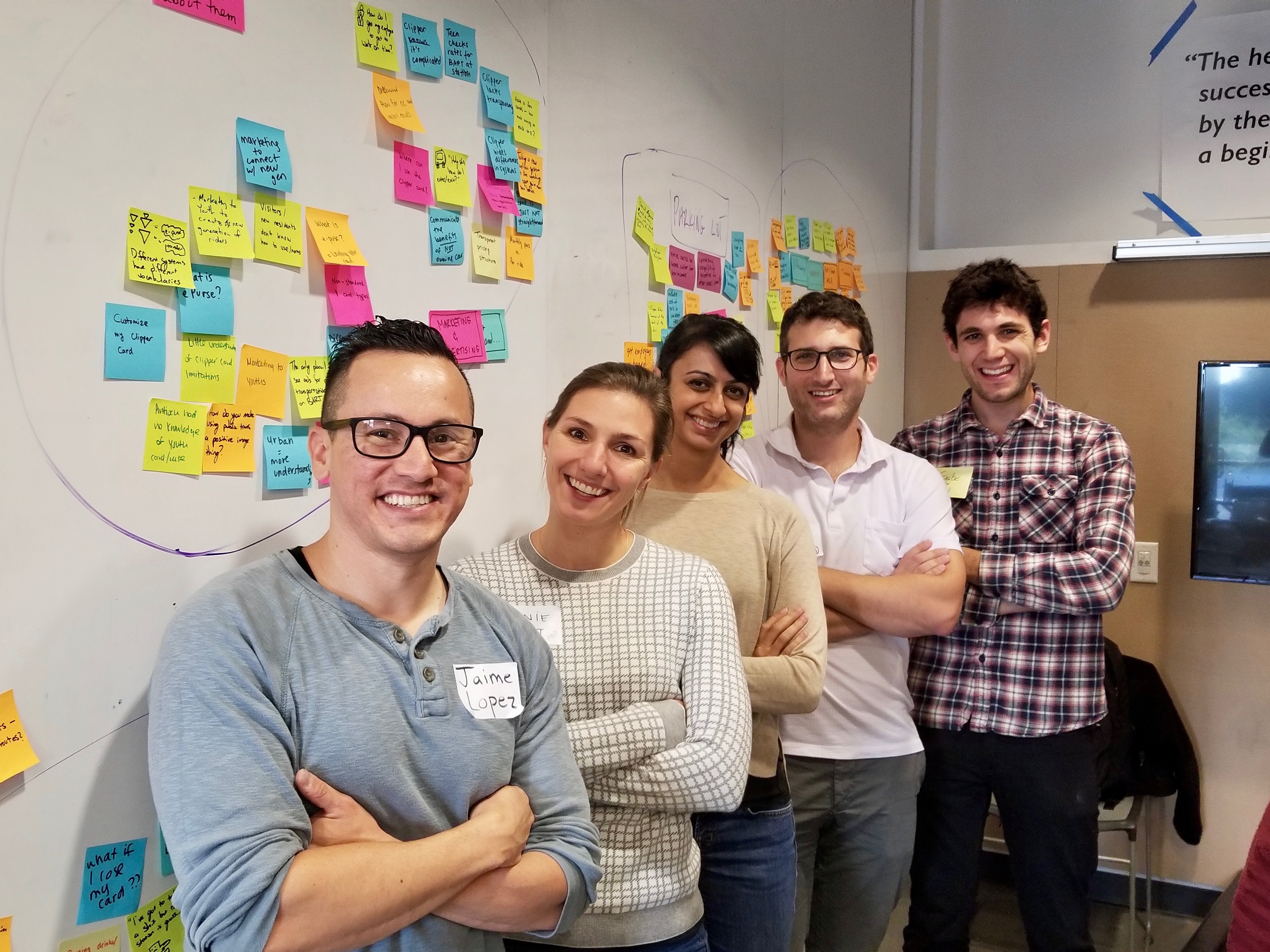Their design for improvements to the Clipper Card tied for first place and won the People's Choice Award at the annual hackathon event
Two Master of Information Management and Systems students Gabriel Nicholas (MIMS ’18) and Nisha Pathak (MIMS ’18) won the Haas Innovation Challenge, along with three other Berkeley students, urban-planning graduate student Jaime Lopez and Haas MBA candidates Annie Sept and Tal Eidelman on October 29, 2017. They tied for first place (the other winning team included yet another MIMS student, Yifei Liu!) and won the People’s Choice Award. They worked with The Metropolitan Transportation Commission and the Alameda County Transportation Commission to design improvements to the Clipper Card to optimize public transit services for low-income families and students.

The Haas Innovation Challenge is an annual full-day competition where students go through the design process in an effort to help find potential solutions to a client’s problem. Throughout the long competition, the teammates worked together to interview clients, including low-income community members, a bus driver, and other public transit representatives to develop innovative public transit improvements. They found several problems that needed to be solved including families’ inability to withdraw funds previously deposited from the Clipper Card and the inability to share funds between relatives.
“We decided to create a family plan where the money loaded onto the card could be used across the family,” explained Nisha Pathak. “Individual family members could also choose the design of their card (usually meant for children) to make the process of identifying cards easier and more enjoyable. We also added an auto-payment system that was based on the payer’s pay cycle. That way, they would have more control over when and how much they allocated to the card.”
The team also designed a way for Clipper Card users to text the system to add additional funds to the family plan, and a design process that indicated where children were on their routes to/from school after using the card to ride BART. “For example,” said Nisha “their parent would get a text update indicating that their child had reached the Montgomery Station at 8:13 am.”
The I School teammates were excited by the opportunity this competition offered to practice design thinking and learn more about the business side of the design process. Creating technical solutions that have a positive social impact, in this case benefiting low-income public transit users, is core to the ideals and mission of the I School curriculum.
The team came together through the diversity of their backgrounds and flexibility of their planning. Both I School students attested to the value of the relationships built at the competition: “The best part,” said Gabriel Nicholas, “was working on a team with so many different backgrounds. Nisha is a designer, I’m a programmer, we had a first- and second-year business student and an urban planning student. Our diversity of knowledge is why it was fun and why we did well.”
“These events are always a great way to meet other people who bring different points of view and experience to the table,” said Nisha. “While it may sound counterintuitive, in my experience, this diversity of thought oftentimes helps and accelerates the process. We had a great balance of experience on our team which helped us succeed.”
The Haas Innovations Challenge is hosted by the Haas School of Business Innovation and Design Club, in partnership with IDEO, a global design and innovation firm. Students were challenged to use IDEO’s model of human-centered design to devise solutions founded upon empathy and cooperation with the people they were trying to help. IDEO and the competition’s clients were ultimately responsible for determining the best ideas from the event.
The Berkeley team was awarded first place honors along with the People’s Choice Award, showing their design truly responded to the problems of the communities they were intended to serve.












